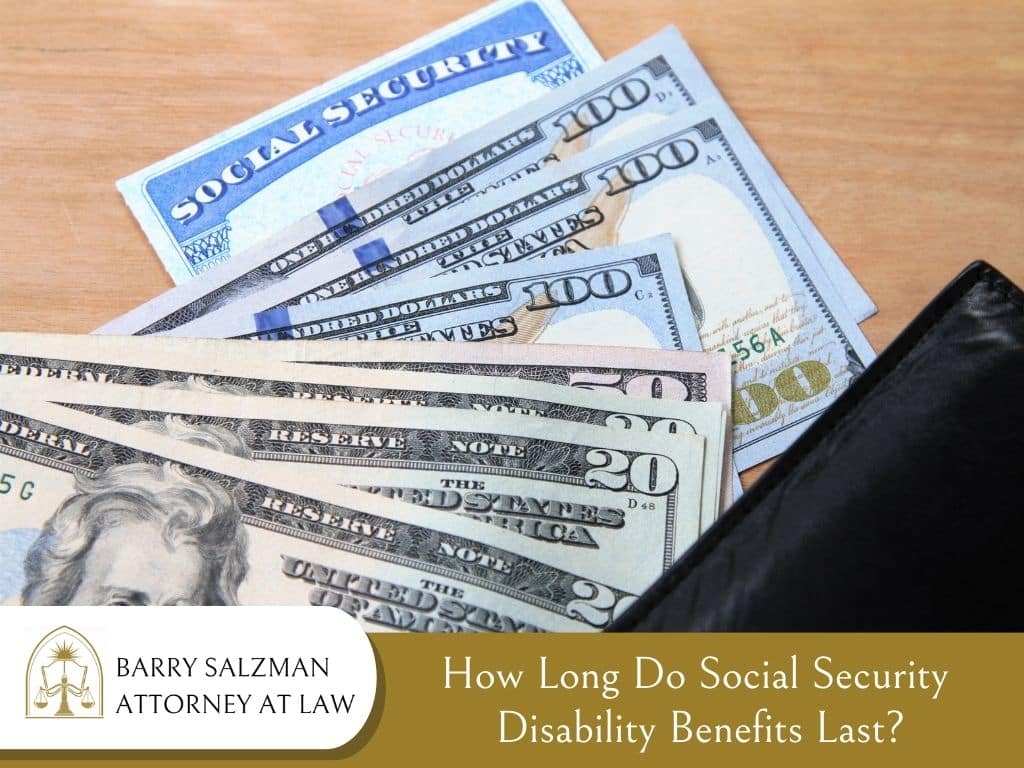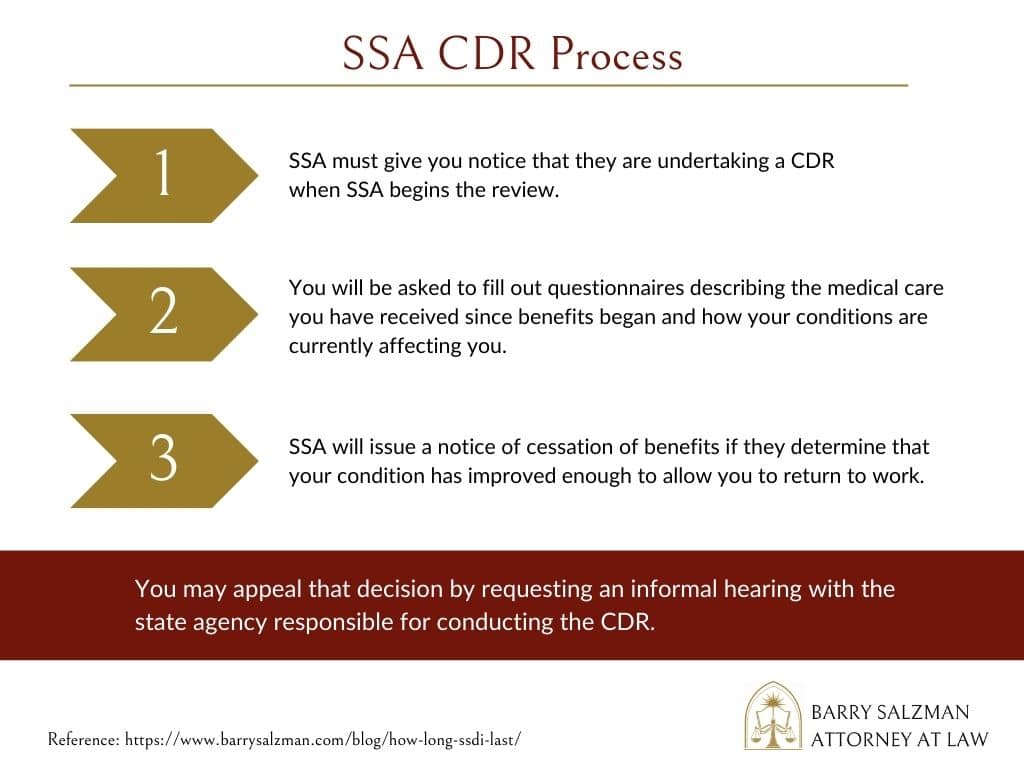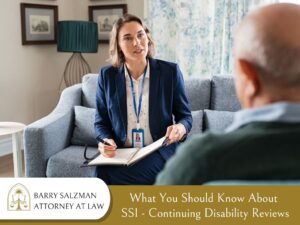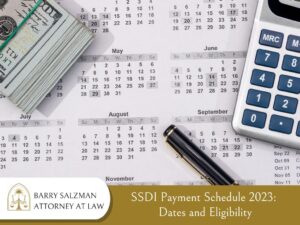How Long Do Social Security Disability Benefits Last?

Great! You have now been awarded social security disability benefits. But how long can you receive these benefits?
No award of benefits can truly be considered “permanent”.
All disability insurance benefits (except Supplemental Security Income) end at your full retirement age and simply convert to your retirement benefit, which is equivalent to your disability benefit (unless you started early retirement benefits before acquiring disability benefits).
The Social Security Administration always has the right to conduct a “continuing disability review (CDR)” to determine if you remain disabled. The frequency of these reviews is dependent on the nature of your disability.
Factors Affecting CDR Frequency

Several factors affect how frequently these reviews will be conducted. Conditions such as paraplegia and quadriplegia are usually permanent conditions that do not improve over time. People aged 55 and above are less likely to be reviewed because the standard of disability for persons of advanced age is far easier to meet than for younger persons.
Conversely, younger persons (under age 50) may face a CDR every three years. If you were awarded benefits after going to a hearing with a judge, the judge might include in his/her order a recommendation that a CDR is conducted within a year or other period.
The judge’s recommendation is not binding on SSA. Persons with mental conditions are more likely to face a CDR because many mental conditions improve over time and with medication.
SSA CDR Process

SSA must give you notice that they are undertaking a CDR when SSA begins the review. At this initial stage, you will be asked to fill out questionnaires describing the medical care you have received since benefits began and how your conditions are currently affecting you.
SSA will issue a notice of cessation of benefits if they determine that your condition has improved enough to allow you to return to work. You may appeal that decision by requesting an informal hearing with the state agency responsible for conducting the CDR.
You will be able to have your disability benefits and Medicare benefits continued while your appeal (you must make this election within ten days of receipt of the notice of cessation even though you have 60 days to appeal the cessation).
The informal hearing allows you and other witnesses to appear before the adjudicator to present testimony about how your conditions are affecting you. Following the hearing, the state agency issues a notice of reconsideration, either affirming the cessation or reinstating benefits. If benefits are not reinstated, you may request a hearing before an Administrative Law Judge and have your benefits continued while awaiting your hearing.
Benefits cannot be continued following a determination by an Administrative Law Judge that you are no longer disabled, even though you may appeal that decision to SSA’s Appeals Council and subsequently to federal court. In addition to determining whether the conditions for which you were found disabled have improved, SSA must also determine whether you have any new conditions which disable you and were not considered when you were originally found disabled.
Tips for Surviving a CDR

You may seriously damage your ability to survive a CDR if you cease regular medical care after receiving an award of benefits. This results in there being no records to support continued disability and leads the state agency to conclude that if you are no longer receiving medical care, your condition must have improved.
It is essential to be prepared and aware of the potential actions you can take to increase the likelihood of keeping your benefits during a CDR. Below are some tips to keep in mind:
- Regular medical attendance allows you to discuss your continued difficulties with your doctor so that he/she can note your complaints in your records.
- Unsuccessful efforts to return to work or vocational retraining may also provide persuasive evidence of continued disability.
- Keeping a diary or other notation of continued difficulties with daily living activities provides more credible evidence than generalized testimony of ongoing problems.
- Friends and relatives who have witnessed your difficulties may provide written statements that must be considered.
- It is likewise important to document any new conditions not previously considered when benefits were awarded.
- Returning to part-time work below certain levels discussed below may also help you survive a CDR by demonstrating that you remain unable to tolerate full-time work activity.
- Statements from employers and supervisors may be helpful.
Frequently Asked Questions

Will SSA Conduct Medical Review During Trial Work Period?
A trial work period ends after a recipient performs services in nine months during a rolling period of 60 months. 20 C.F.R. §404.1592(e)(2). But it can also end earlier. According to 20 C.F.R. §404.1592(e)(3), it can end:
The month in which new evidence, other than evidence relating to any work you did during the trial work period, shows that you are not disabled, even though you have not worked a full nine months. We may find that your disability has ended at any time during the trial work period if the medical or other evidence shows that you are no longer disabled. See §404.1594 for information on how we decide whether your disability continues or ends.
Note that in order for the trial work period to end and benefits to be terminated before the nine months of trial work are used up, SSA must have new evidence of improvement other than evidence relating to the work done by the recipient. This provision is meant as a work incentive. It is the SSA’s way of providing that the work itself won’t be used against the recipient.
For SSA to discover new evidence of improvement, it must conduct a continuing disability review (CDR). In fact, a return to work is a trigger for a CDR. According to 20 C.F.R. §404.1590(b), SSA will start a CDR under the following circumstances:
- Substantial earnings are reported to your wage record;
- You tell us that—. . .
- You have returned to work;
- Your State Vocational Rehabilitation Agency tells us that—. . .
- You are now working;
- Someone in a position to know of your physical or mental condition tells us any of the following, and it appears that the report could be substantially correct: . . .
- You have returned to work;
In other words, if the recipient reports that he has returned to work or if anyone else reports that the recipient has returned to work, the regulations provide that SSA will conduct a CDR. Although SSA provides the trial work period as an incentive for recipients to return to work, the specter of a CDR operates as a distinct disincentive for return to work.
In order to increase the incentive for returning to work, an exception exists for those who have received disability benefits for at least 24 months. For such recipients, SSA will not start a medical continuing disability review based solely on a report of work activity. Nevertheless, although recipients of disability benefits who have received benefits for 24 months are protected from SSA initiating a continuing disability review solely because of work activity, such recipients are subject to regularly scheduled medical CDRs and medical CDRs that are initiated for other reasons.
Seek Expert Legal Assistance During a CDR
Seeking legal advice and assistance with a Social Security Disability Attorney can also greatly increase your chances of keeping your benefits during a CDR. Attorney Barry Salzman has the knowledge and experience to guide you through the complex process of filing a social security disability claim. If you are concerned about your benefits or facing a CDR, please don’t hesitate to contact us or call (727) 334-7547.
Schedule Your Consultation Today
Navigating the bureaucracy of any disability program is complex and frustrating and often ends in denial.
Don't do it alone! Have a dedicated, experienced advocate on your team.
Fill out the form below or give us a call at 727-321-4993.



